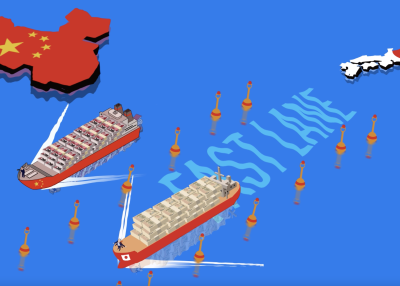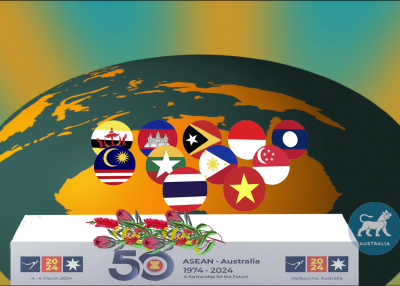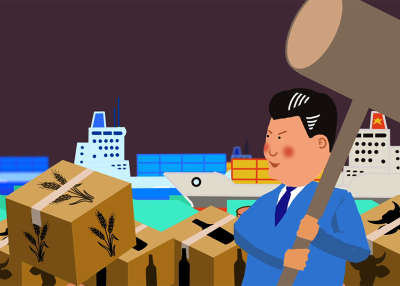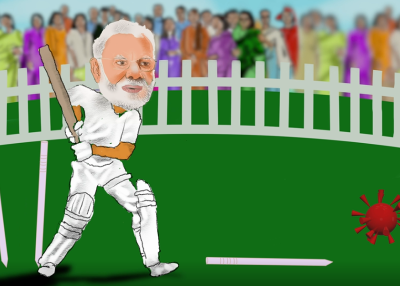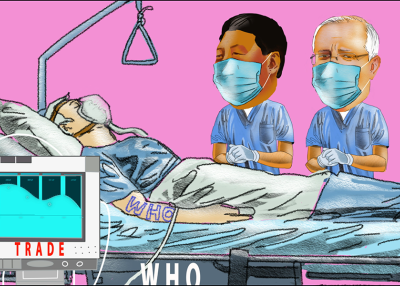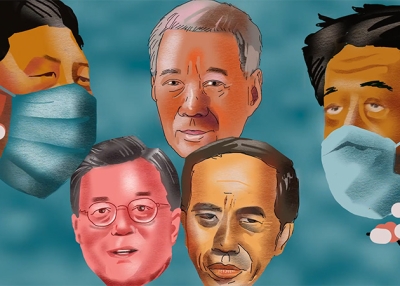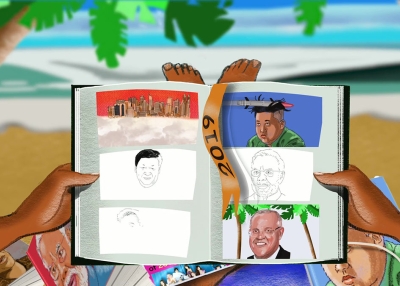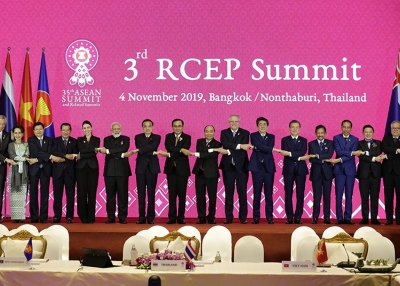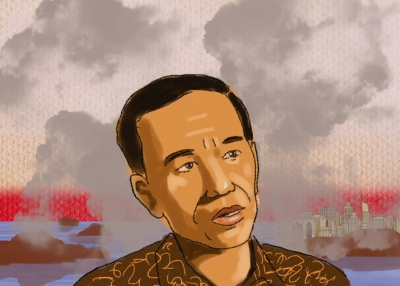Briefing MONTHLY #8 | July 2018
India's lead on trade | Changing tack with China | Australian airtime in the Pacific | Thailand's human break

New players … Jacqui Baker, Thomas Baudinette and Tanya Jakimow at the Asian Studies conference.
A 1000 SCHOLARS BLOOM
High profile companies may be pulling back from Asia and language study under pressure, but the numbers from the latest Asian studies conference suggest a quiet renaissance is underway in academia.
With 300 panels, 800 papers and 1000 attendees, the biennial conference of the Asian Studies Association of Australia (ASAA) - held at Sydney University this year - was the largest ever, with about three times as many attendees as the 2016 event.
The rise of China and of authoritarian governments in Southeast Asia (see more below) were predictable subjects in the panel discussions, but the distinguishing feature was the diversity of subject matter on this year’s agenda.
“If an architect came along I wanted to make sure they would find something in every timeslot that made the conference worthwhile,” says Michele Ford, the conference convener and Sydney Southeast Asia Center director, about the way the event was structured.
Ford recruited discipline or thematic champions to take charge of the panel groups and recruit people to deliver papers from outside the narrower ranks of Asian specialists.
This organisational choice reflects a deeper debate within the academic world about whether Asian knowledge - which is needed in broader Australian institutions - is best delivered by being embedded in various university disciplines or from within Asian studies (or so-called area studies) departments.
The conference theme of “Area Studies and beyond” sought to capture this debate which became one of the key themes of the opening plenary session panel.
Murdoch University Southeast Asian politics lecturer Jacquie Baker argued that while area studies departments were being run down in favour of embedding Asian expertise in traditional disciplines, Asian studies students had a stronger track record getting jobs in the long term. “They have both broader understanding and language skills,” Baker said.
But other scholars at the conference say that embedding Asian knowledge in all disciplines from engineering to history is the main challenge for a country facing the regional engagement challenges Australia has.
This year’s conference organisers also took two other strategic organisational decisions that seemed to change the dynamic of a gathering that has traditionally been dominated by Asian affairs specialists focussed on Southeast Asia.
Apart from relying on disciple specialists from fields such as anthropology and urban planning to bring in more participants and ideas, the organisers also gave sub-regional groupings more ability to get together at dinners or focussed special plenary sessions.
The other somewhat controversial decision was to give younger emerging scholars a bigger role in the event than more established figures, in an attempt to nurture a new generation of Asian expertise both in the disciplines and in area studies.
This was underlined by the plenary session which featured Baker, University of NSW development studies lecturer Tanya Jakimow and Macquarie University Japanese studies lecturer Thomas Baudinette.
They discussed issues such as getting students to travel to Asia and how to deliver Asian knowledge across faculties from the perspective of younger teaching academics in contrast to a more traditional speech by a senior professor emeritus surveying the landscape from afar.
An academic with long experience of the ASAA conference says: “That was a very risky thing to do with the plenary - but it paid off.”
ASIAN NATION
ENGAGING INDIA
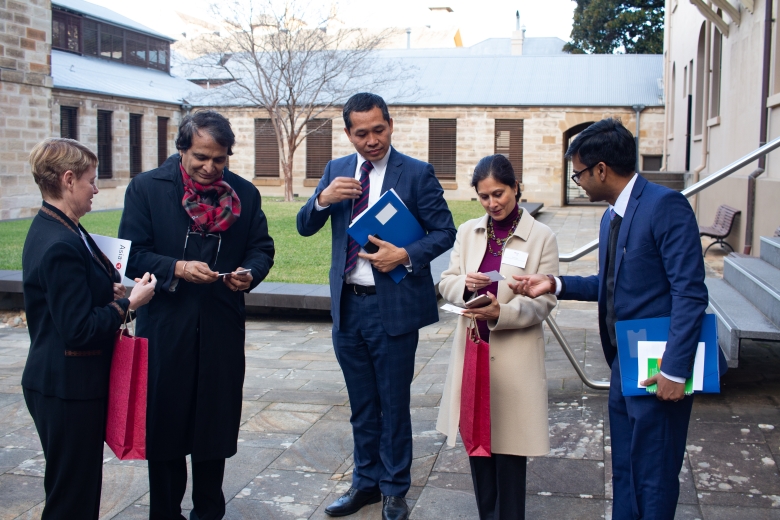
Asia Society Australia Board Members, Jenny Lang and Swati Dave greet India’s Minister of Commerce & Industry and Civil Aviation, H.E Suresh Prabhu and India’s Consulate General in Sydney, Mr Bawitlung Vanlalvawna. Picture: Julia Bergin/Asia Society Australia
India has taken the first step towards embracing Australia’s new strategy of moving beyond a formal trade deal negotiation by commissioning its own study of bilateral economic engagement.
Delivering the Asia Society Australia Leaders on Asia Address in June, Indian Minister for Commerce and Industry Suresh Prabhu committed to matching the newly released report to the Federal Government on India by former Department of Foreign Affairs and Trade secretary Peter Varghese. The report An India Economic Strategy to 2035 has set out a strategic pathway for Australia to develop closer economic relations with India beyond the moribund seven-year-old Closer Economic Cooperation Agreement (CECA) negotiation. Varghese argues quite bluntly that Australia should turn to the broader multi-lateral Regional Comprehensive Economic Partnership negotiation for trade openings in India and leave a bilateral negotiation until well into the future. But more challenging for Australian government and business is Varghese’s argument that India represents more of a long term two-way investment relationship than a trade relationship, in contrast to China and Japan. And he says Australia needs a much more targeted approach to focus on the particular Indian states which are at the forefront of economic reform. Varghese is not the first analyst to make the point that Australia needs to move on from old views of India, but it does it with some panache: “What we achieve together in coming decades will have little to do with a shared imperial past. It will have not much to do with the English language, although that will greatly help. And it will have to be a tighter bond than anything forged on a cricket field.”
CHINA RESET
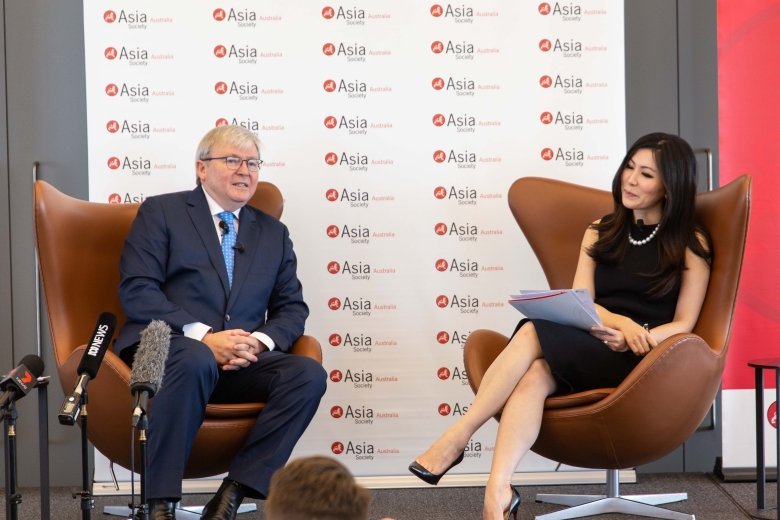
Kevin Rudd in conversation with Bloomberg's Haidi Stroud - Watts. Picture: Asia Society Australia
Former Prime Minister Kevin Rudd has backed the creation of a private forum of senior business and public officials to discuss difficult national security issues before they get to the point of the freeze in the current relationship with China. The Minerals Council of Australia proposed a similar sort of body during last year’s Foreign Policy White Paper consultations - but it didn’t make the final cut. Now Rudd has told an Asia Society Australia Leaders on Asia Address, that such a “Chatham House discussion” could be the first step towards a national China strategy in contrast to what he called the “piecemeal approach” which now prevailed. He conceded that the initial approach to China under his leadership in 2008 had also been reactive but it had then taken two years to develop a coherent strategy. Asia Society Australia chairman Doug Ferguson backed the Chatham House forum approach saying it was something the organisation would take forward.
RETUNING THE PACIFIC
The sudden spate of ministerial visits and infrastructure building in the South Pacific has overshadowed the inquiry which quietly got under way in June into Australia’s disappearance from the airwaves in the region. The fact neither the Federal Government nor the ABC sought a review of the way Australia voice is delivered to the region makes this an unusual inquiry because there is not an identifiable predetermined outcome. The inquiry was forced on the key players by former Senator Nick Xenophon as part of last year’s media law changes which means it could provide a rethink of the way tensions between the government (of both colours), the ABC, and the private media have resulted in a downgrading of radio and television into a region where Australia is now again trying to reassert its influence.
TEACHERS RULE
A survey of the international students who underpin the economics of Australia’s tertiary education system shows they are not necessarily attracted by the international rankings which many universities trumpet. The survey of 28,000 students by QS Enrolment Services found that the quality of individual professors and their experience outside the academic world was a key factor in student choice. Post-graduation jobs were also important, with 62% of students saying they wanted to stay in Australia for at least six months after finishing study.
NEIGHBOURHOOD WATCH
OUT OF A HOLE
It is hard to push the World Cup soccer diving antics off the global front page, but the rescue of the Wild Boars soccer team from the Chiang Rai cave in northern Thailand certainly managed to do so. However, by humanising the relative administrative efficiency of the Thai military regime it may also have provided some breathing space over the long promised (but delayed) election which was starting to draw discontent from otherwise opposed sides of Thai politics.
* Commentator Thitinan Pongsudhirak doubts the afterglow will last for the Thai government in this Bangkok Post article. But he says “it deserves credit for taking a hands-off approach, decentralising and delegating authority to local officials on the scene.”
* This heart-rending New York Times story about the four stateless members of the team from the Thai/Myanmar/Lao borderlands also illustrates how irregular people movement can transform lives in unexpected ways.
ELECTIONS VS DEMOCRACY
Sandwiched between Malaysia’s surprise election result and Cambodia’s more predictable outcome, the Asian Studies Association of Australia conference featured much debate about the direction of political change in Australia’s closest Asian neighbours. Research by Griffith University’s Lee Morganbesser into the conundrum of whether Southeast Asian elections really produce democratic outcomes produced one of the best lines of the conference. After comparing the region’s political evolution with other parts of the world, he concluded that Southeast Asia may well be “the graveyard for comparative theory.” Canberra University’s Nicole Curato underlined this point with more of her fascinating grassroots research from the Philippines explaining why President Rodrigo Duterte retains strong support. She says many Filipinos (and their families) who use drugs to get through gruelling dirty jobs still think Duterte is right to be cleaning up hard core addicts and drug pushers. Meanwhile the eminent Malaysian economist Jomo K.S. said the duration of the shift in the Malay vote to the new government was very uncertain and both the new government and the new opposition were vulnerable to destabilisation by ethnic Malay nationalist forces from within their ranks.
DEALS AND DOLLARS
FINANCE EXODUS
IAG Insurance is the latest financial services company to pull back from investment in Asia with the sale of its operations in Thailand, Indonesia and Vietnam. It has agreed to sell its majority-controlled businesses in Thailand and Indonesia to the Japanese property and casualty insurer Tokio Marine Holdings for about $525 million. It plans to sell its 73% interest in Vietnam-based AAA Assurance Corp with no details disclosed. It said it expected to record a profit of at least $200 million. The sales are likely encourage a review of its minority stakes in businesses in India and Malaysia. IAG's pullback from Asia came a month after the Commonwealth Bank of Australia announced the sale of its 37.5 per cent stake in a Chinese life insurer joint venture - BoComm Life Insurance - to Japan's Mitsui Sumitomo Insurance for $668 million.
CAR PARTS FOR THAILAND
A new foray into Asia by the troubled Australia car industry is underway with a Burson automotive parts store open in Bangkok. The Thai store is the first step into Asia by the Burson parts chain operated by ASX-list Bapcor with the new Bangkok store targeting both retail and trade customers with a big focus on Toyota parts. But Bapcor is planning four other Thai stories by the end of the years with plans for other Asian outlets if the Thai business goes well.
TOLL BACK ON THE ROAD
Japanese owned logistics company Toll has returned to profit and revenue growth for the first time in three years after a restructuring that saw large job cuts and the closure of operations in five countries. Toll was once the flagship of the new wave Japanese investment push into Australia with its $6.5 billion acquisition by Japan Post in 2015. But Japan Post has now written most of that purchase price off.
PRAWNS ON THE MENU
Japanese seafood giant Nippon Suisan Kaisha (Nissui) has bought a 14.99% share of Australian prawn farmer Seafarms Group for $24.99 million in a move which will help underpin the company’s aquaculture project on the Northern Territory-West Australia border. Nissui will take a seat on the Seafarms board and guarantee an offtake of 10-20 per cent of the premium black tiger prawns produced by the planned Project Sea Dragon. Seafarms’ north Queensland properties produce more than a third of all Australia’s farmed prawn production.
DIPLOMATICALLY SPEAKING
“Too much of politics today seems to reject the very concept of objective truth. People just make stuff up … We see it in state-sponsored propaganda; we see it in internet-driven fabrications, we see it in the blurring of lines between news and entertainment, we see the utter loss of shame among political leaders where they're caught in a lie and they just double down and they lie some more.” Barack Obama 2018 Nelson Mandela Annual Lecture
WHAT WE'RE READING

EMPIRE OF ENCHANTMENT by JOHN ZUBRZYCKI (Scribe)
In the early 1900s, Britain’s most prestigious magicians club offered a 500 guinea reward for anyone who could perform the legendary Indian Rope Trick without props. The prize was never claimed and the British club presumably thought it had seen off this challenge to its pre-eminence from the colonies. But John Zubrizycki’s account of India’s long tradition of magic demonstrates how wrong they were. The book is the more colourful output of a pending PhD on how Indian magic has indeed infiltrated and influenced the west with western magicians often appropriating ideas from the sub-continent. “The story of Indian magic cannot be told without examining its place in the globalisation popular culture and the interplay of Eastern and Western traditions of performance magic,” he writes of his broader research. But this book contains both an historical survey and plenty of practical on the ground experience of Indian magical performance from the mystical to the macabre. Ironically, despite a considerable impact on the world, magicians are now being excluded from the streets of many Indian cities leaving Zubrizycki to wonder how this rich tradition will survive.
DATA WATCH

ON THE HORIZON
POWER STRUGGLE
The implementation of last year’s Foreign Policy White Paper is taking another step with consultations set to begin on how Australia can increase its soft power. This will be followed by the release of a new soft power strategy next year which will seek to embrace potential diplomatic assets beyond government control and coordinate the recent proliferation of new diplomacy initiatives in areas such as sport, culture and science. The need for new approaches to soft power has been underlined by the latest Soft Power 30 Index produced by the University of Southern California which records a decline in Australia’s ranking from sixth to 10th since 2015. It will be interesting to see what extra funding will back next year’s soft power strategy release. But DFAT has boosted public diplomacy funding in Southeast Asia and the South Pacific this year in an indication of its new priorities. And it has scored a success with its annual Australia Now promotion which is in Japan this year and has won significant additional private sector backing.
ABOUT BRIEFING MONTHLY
Briefing MONTHLY is a public update with news and original analysis on Asia and Australia-Asia relations. As Australia debates its future in Asia, and the Australian media footprint in Asia continues to shrink, it is an opportune time to offer Australians at the forefront of Australia’s engagement with Asia a professionally edited, succinct and authoritative curation of the most relevant content on Asia and Australia-Asia relations. Focused on business, geopolitics, education and culture, Briefing MONTHLY is distinctly Australian and internationalist, highlighting trends, deals, visits, stories and events in our region that matter.
Partner with us to help Briefing MONTHLY grow. Exclusive partnership opportunities are available. For more information please contact [email protected]
Read previous issues and subscribe >>

